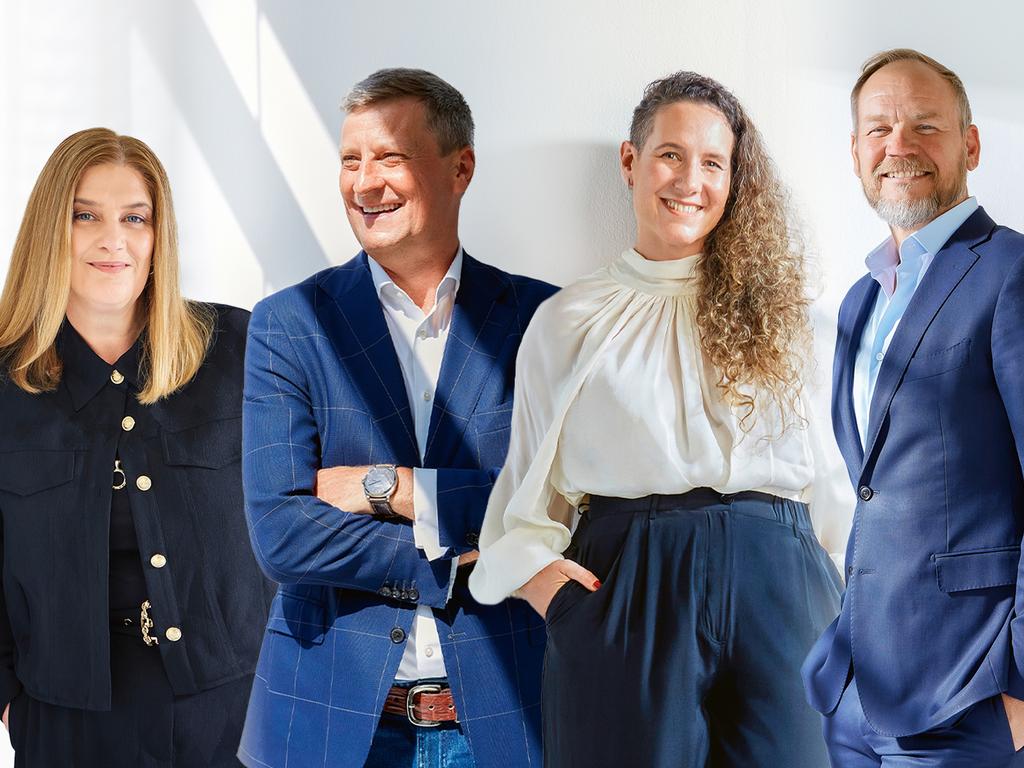Sydney to get three plants to convert waste into energy after start-up raises $5m
Founded in 2020, Arc Ento Tech has raised $5m to expand its tech that converts organic waste into energy using soldier flies.

A tech start-up has raised $5m to help build three new plants in Sydney to turn rubbish into energy, including creating an alternative for coking coal.
Arc Ento Tech, founded in 2020, aims to transform the global waste industry as the World Economic Forum estimates the cost of climate change is set to soar to $US3.1 trillion ($4.8 trillion) a year by 2050.
Arc Ento Tech, a fully Australian-owned company, will build three plants at existing landfill sites in Sydney.
It uses two processes – biological and mechanical – to convert waste into energy.
The biological solution uses black soldier flies to consume all edible organic waste. The larvae are then recovered and converted into commercial products, such as insect meal – which can be used at salmon farms – or as fertiliser.

The mechanical process converts plastics and non-digestible organics into refuse derived reductant, a type of fuel that can be used for a range of industrial purposes. The process targets the carbon and hydrogen content of non-digestible organics to create a “low-cost alternative to the use of high-grade coal or metallurgical coke”. The softened composite material is extruded into an RDR briquette.
ARC Ento Tech chair and managing director Ramon Atayde said the ability to convert waste into “cost-effective commodities like food, fuel, and industrial materials”, shifted demand from “unsustainable primary resources”.
“By transforming waste into valuable sustainable energy and resources, we’re tackling monumental global issues like carbon emissions and landfill while building a business model that can be implemented by industry and governments globally,” he said. “With a track record of strong financial backing and partnerships in North America and Africa already, we’re excited to soon roll out the solution on home soil too and lead the way in creating a more sustainable future for us all.”

Traditional waste-to-energy technologies primarily focus on incinerating waste to generate electricity, like in China where the world’s largest waste-to-energy plant in Shenzhen processes up to 5000 tonnes a day.
But Mr Atayde said that process was wasteful since it negates the value of the different elements in the waste stream to support other industries.
Burning waste also releases carbon emissions into the atmosphere – although the architects of the Shenzhen plan said it’s about half the level of what a traditional landfill site produces.
“Arc Ento Tech offers a complete approach to waste processing by recovering, reforming and repurposing all the elements in the waste stream,” Mr Atayde said.
MCCI Corporation led the $5m funding round. “This funding is a signal of confidence in the commercial viability of solutions within Australia’s renewable energy industries and a huge step forward for ARC Ento Tech and the ARC Process. We’re proving that waste doesn’t have to be a problem – it can be a solution,” Mr Atayde said.
The company has now raised a total of $6.25m since its founding. It’s listed on the secondary trading platform Primary Markets, where its shares can be traded and monitored.
Mr Atayde said about 75.8 million tonnes of waste are produced each year in Australia – almost three tonnes per person – highlighting the need for more capital to go into developing a circular economy in Australia.
French company Veolia has a contract to operate two waste-to-energy plants in WA and last year released research that found the process could produce more than 8 per cent of Australia’s baseload power.
Arc Ento Tech’s raising follows Who Gives a Crap – the irreverent toilet paper brand that counts Mike Cannon-Brookes among its investors – donating $4.7m, half its annual profit, to projects aimed at solving the sanitation crisis, plaguing developing countries.
Projects funded included installing toilets in Nairobi’s urban slum, which involves containerised waste collections. Waste is taken away for offsite processing, mixed with restaurant waste and, like Arc Ento Tech, uses soldier flies to convert it into fertiliser or chicken feed.






To join the conversation, please log in. Don't have an account? Register
Join the conversation, you are commenting as Logout